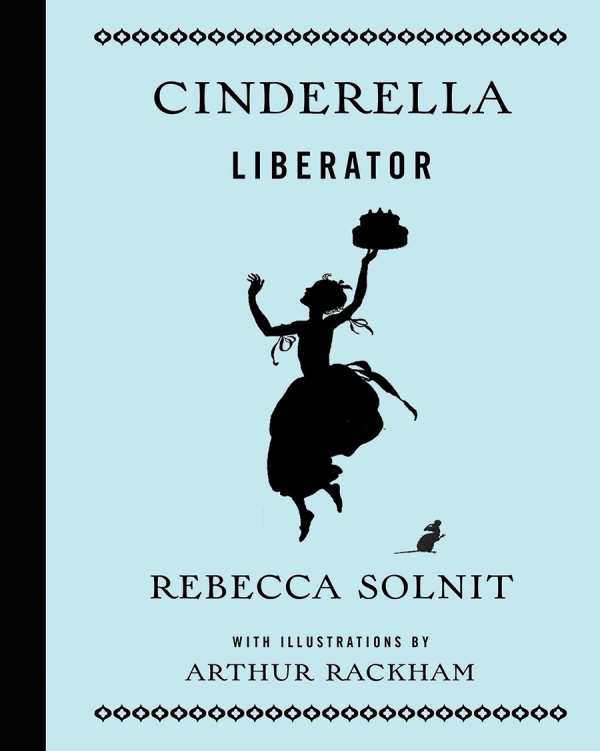Cinderella Liberator
Cinderella Liberator is a whimsical, feminist retelling of the classic tale, transformed by Rebecca Solnit and illustrator Arthur Rackham to be about discovering yourself and being kind to others. Where the canonical one-dimensional princess flounders, this Cinderella turns her back on sexist expectations and tradition. Cinderella Liberator is a new kind of fairy tale for a modern, changing juvenile audience.
The story begins much like it always has—with a young girl forced to work and live in terrible conditions despite her stepsisters’ and stepmother’s lavish lifestyles. Cinderella attends a fancy ball one night in secret thanks to her fairy godmother, leaves in a hurry, and forgets her glass slipper.
However, the text soon veers off course: Cinderella becomes friends with the prince, rather than his bride, and chooses to open her own bakery instead of becoming a princess. The new Cinderella spreads joy and self-discovery wherever she goes, namely due to her kindness and altruism.
Cinderella Liberator contains more than a few important messages, including about kindness and being yourself rather than who others expect you to be. A particularly moving passage promotes the idea of subjective beauty to combat low self-esteem.
The book’s feminist themes are never didactic, and it slips in progressive language like gender-neutral pronouns without making a big deal about it. The story also contains playful grammar and word tricks. Solnit dabbles in alliteration, repetition, and humor to create an enjoyable reading experience.
The text is awash with gorgeous illustrations that call to mind old-fashioned silhouette portraits. As the story progresses, the art takes on more and more striking colors and adds details to tell Cinderella’s tale.
Rebecca Solnit’s children’s book is a magical, clever adventure whose protagonist “liberates” by being kind, open, and helpful. This remaking helps bring Cinderella into the modern age.
Reviewed by
Mya Alexice
Disclosure: This article is not an endorsement, but a review. The publisher of this book provided free copies of the book to have their book reviewed by a professional reviewer. No fee was paid by the publisher for this review. Foreword Reviews only recommends books that we love. Foreword Magazine, Inc. is disclosing this in accordance with the Federal Trade Commission’s 16 CFR, Part 255.

